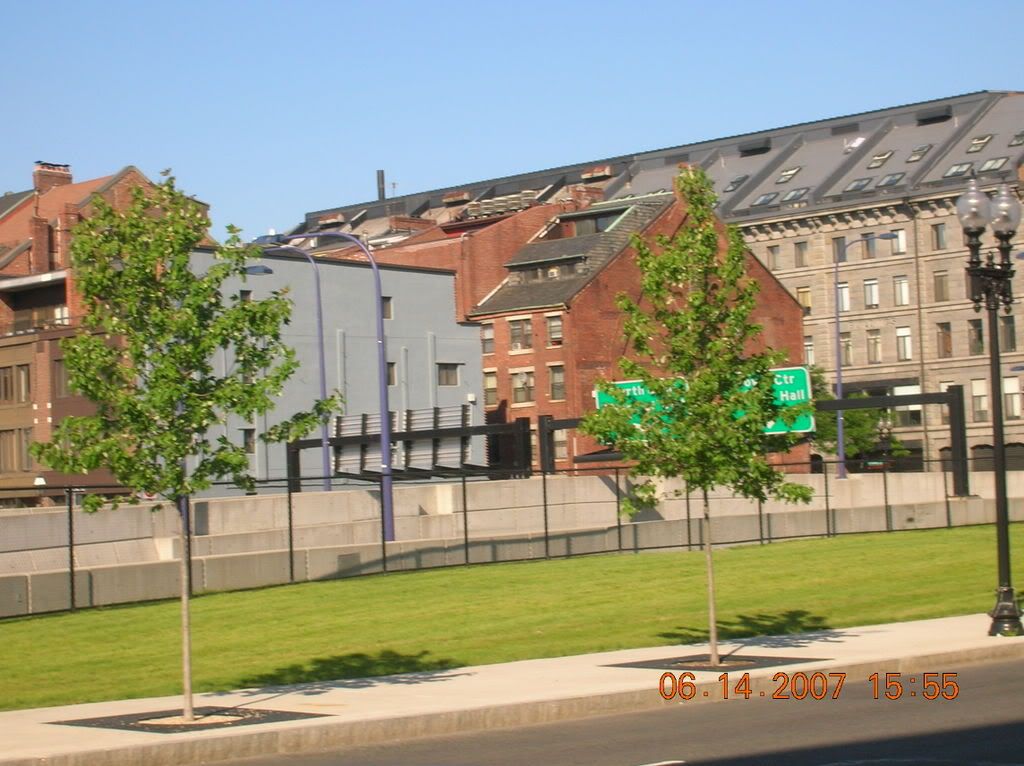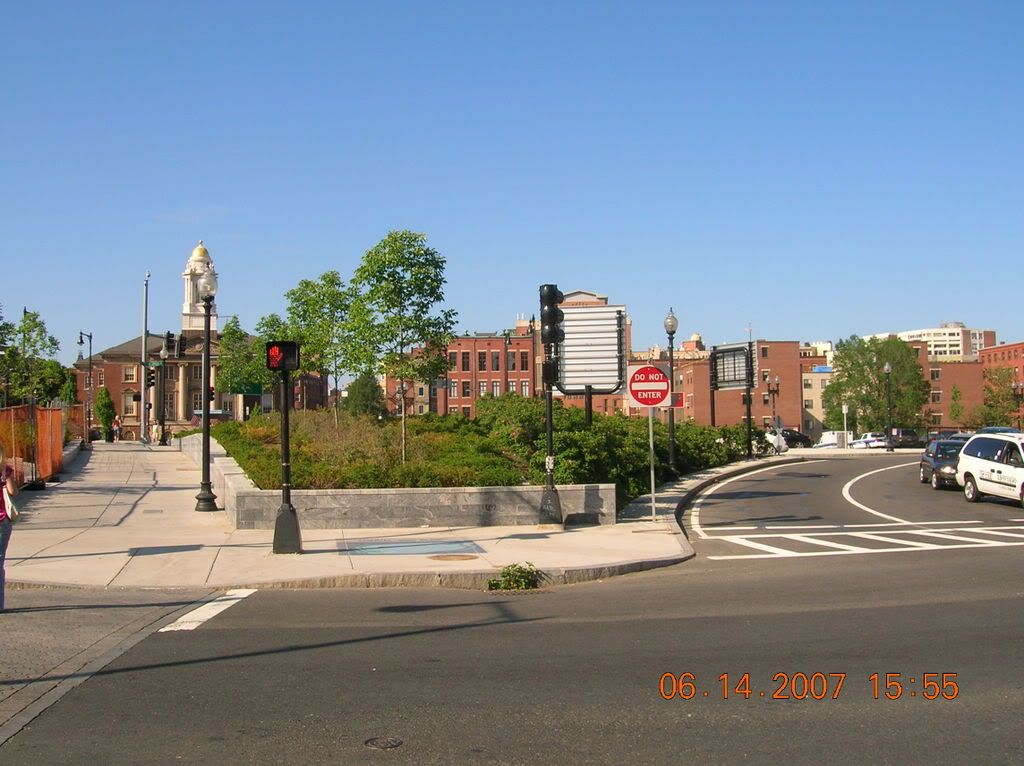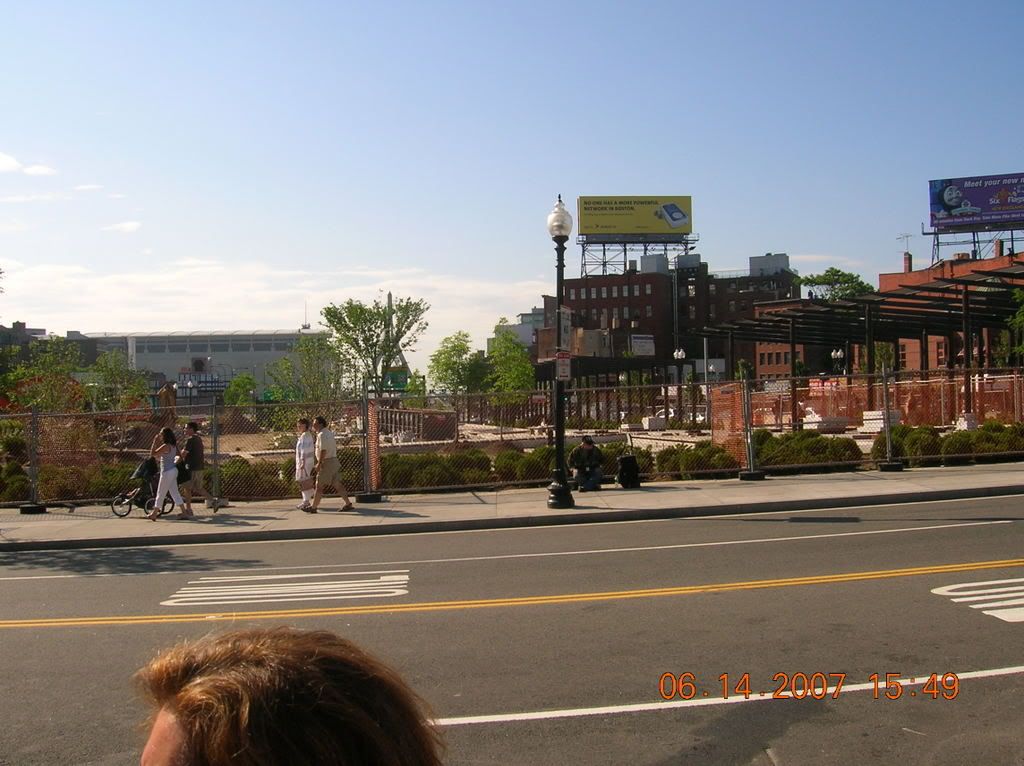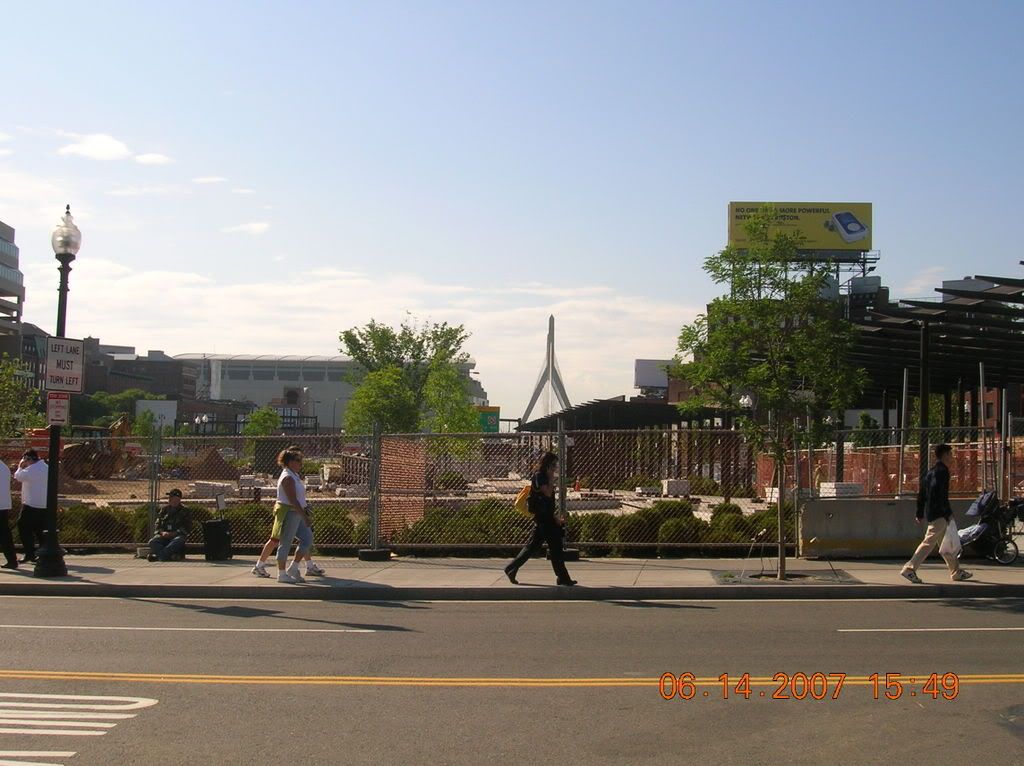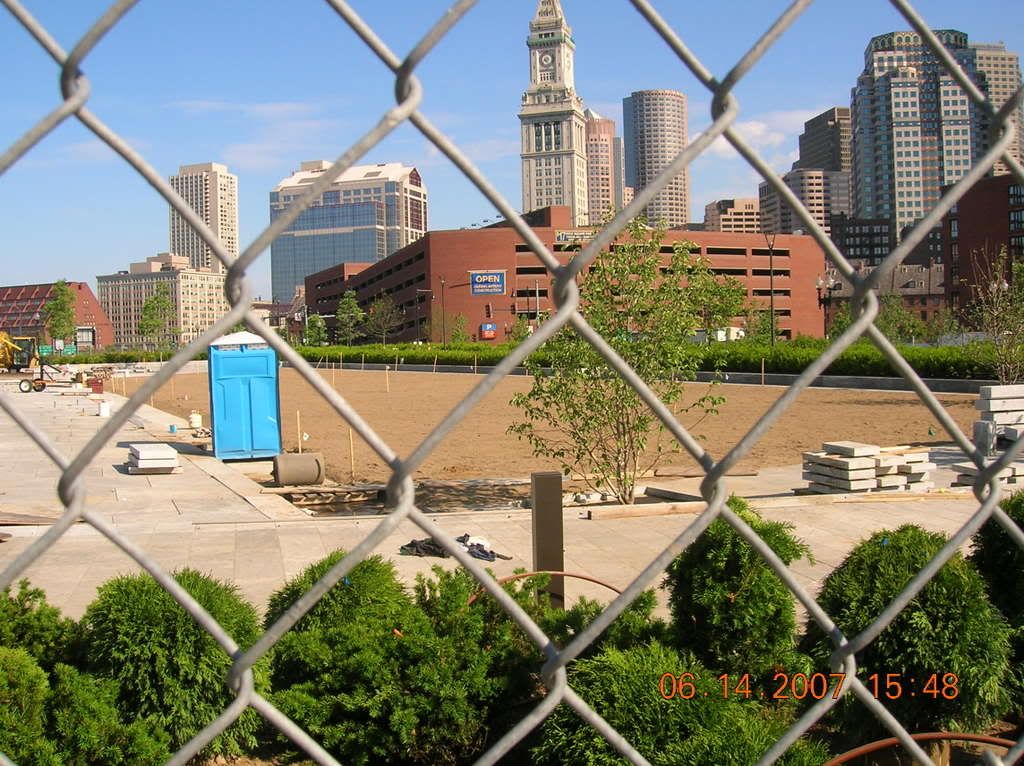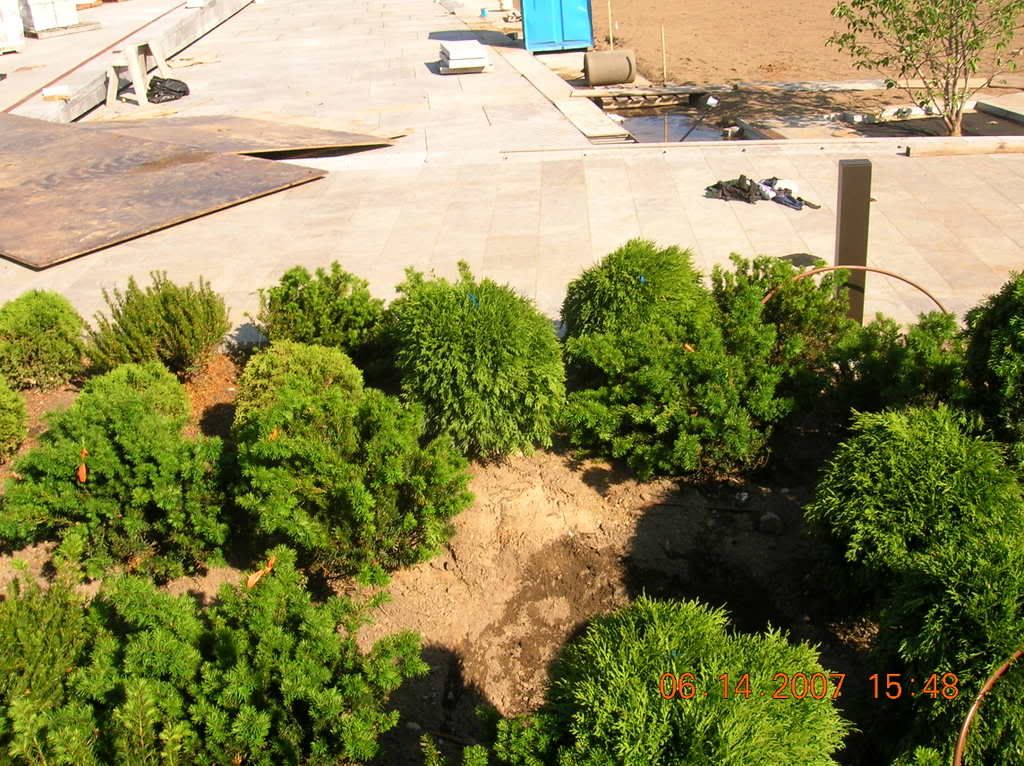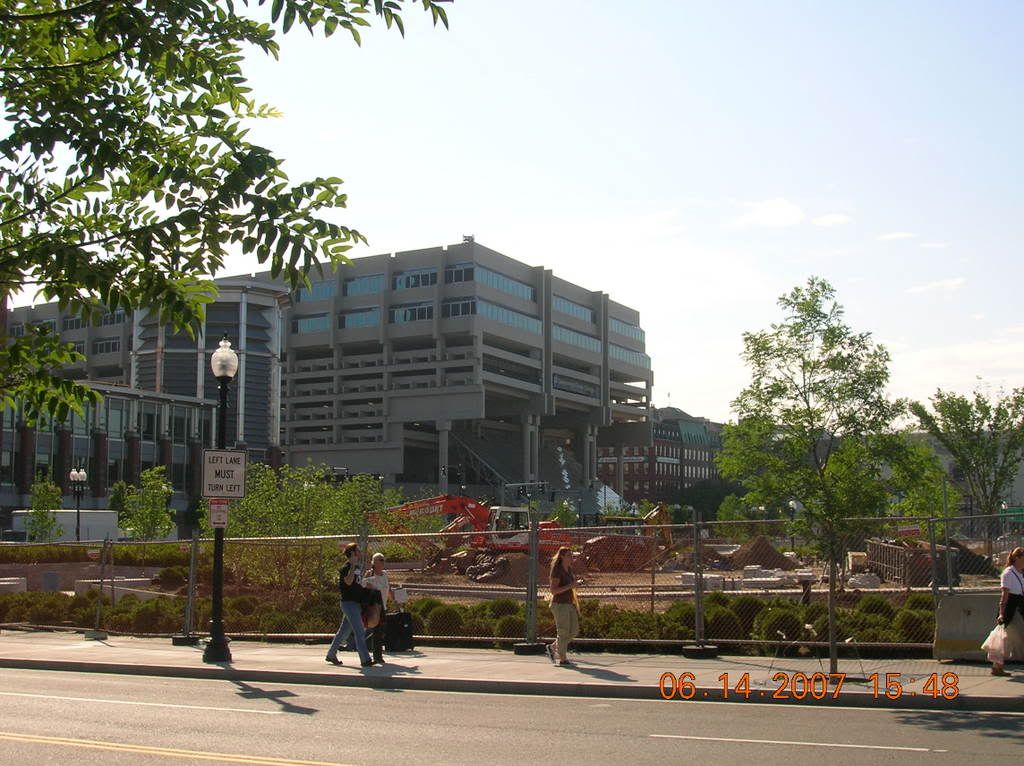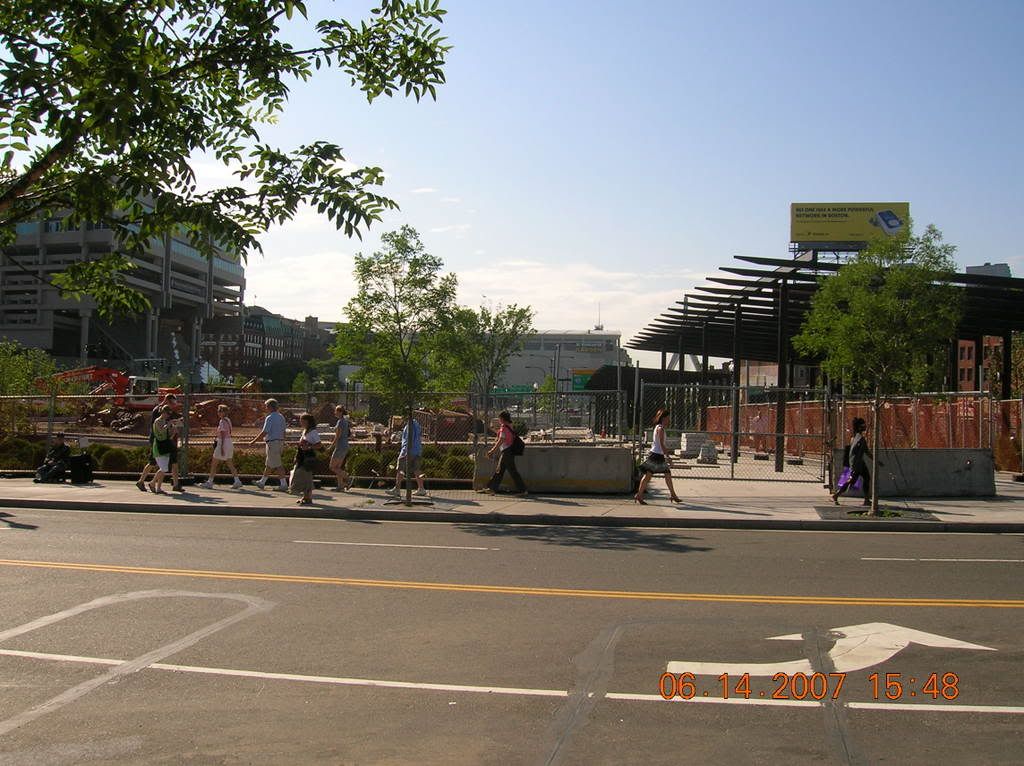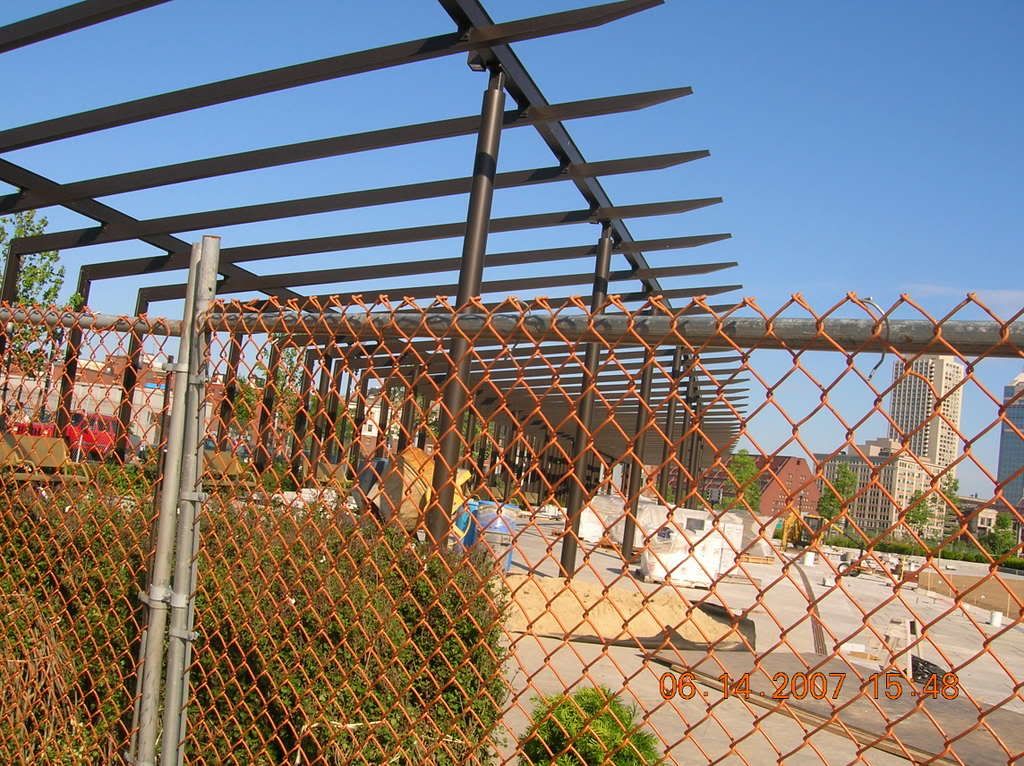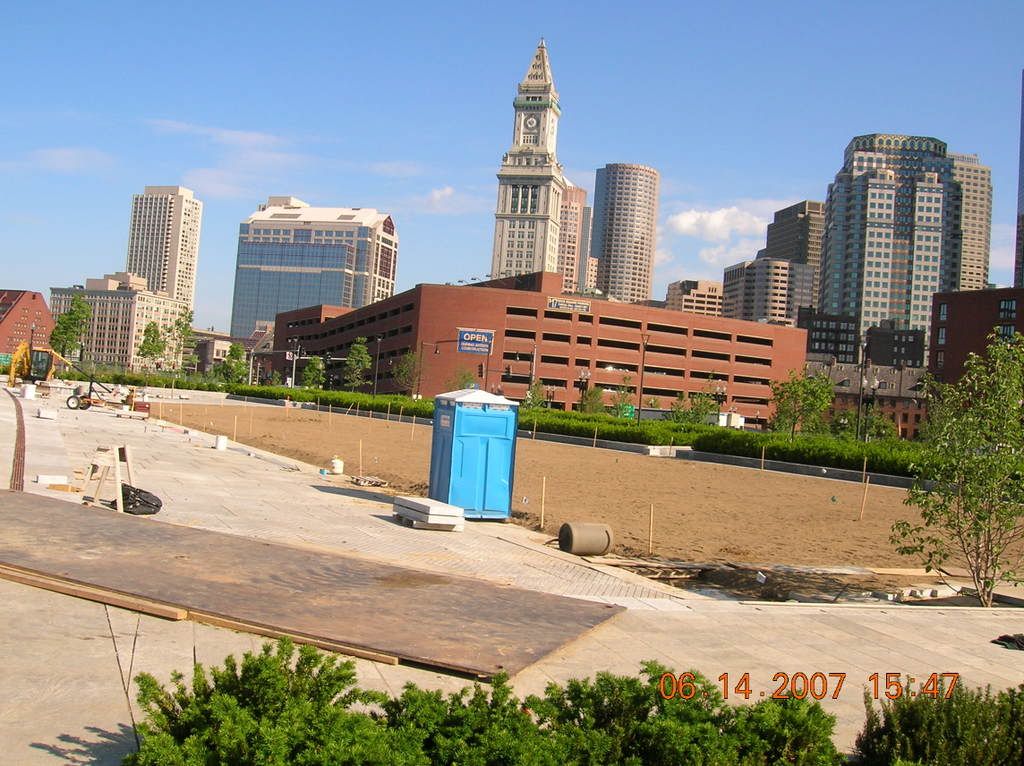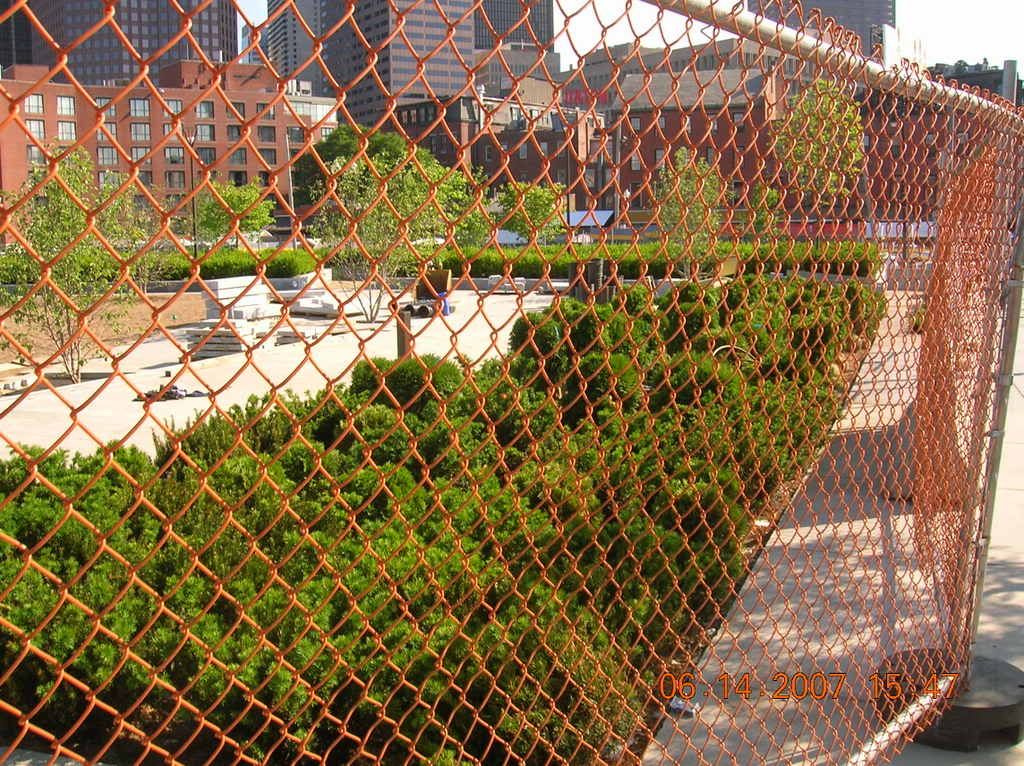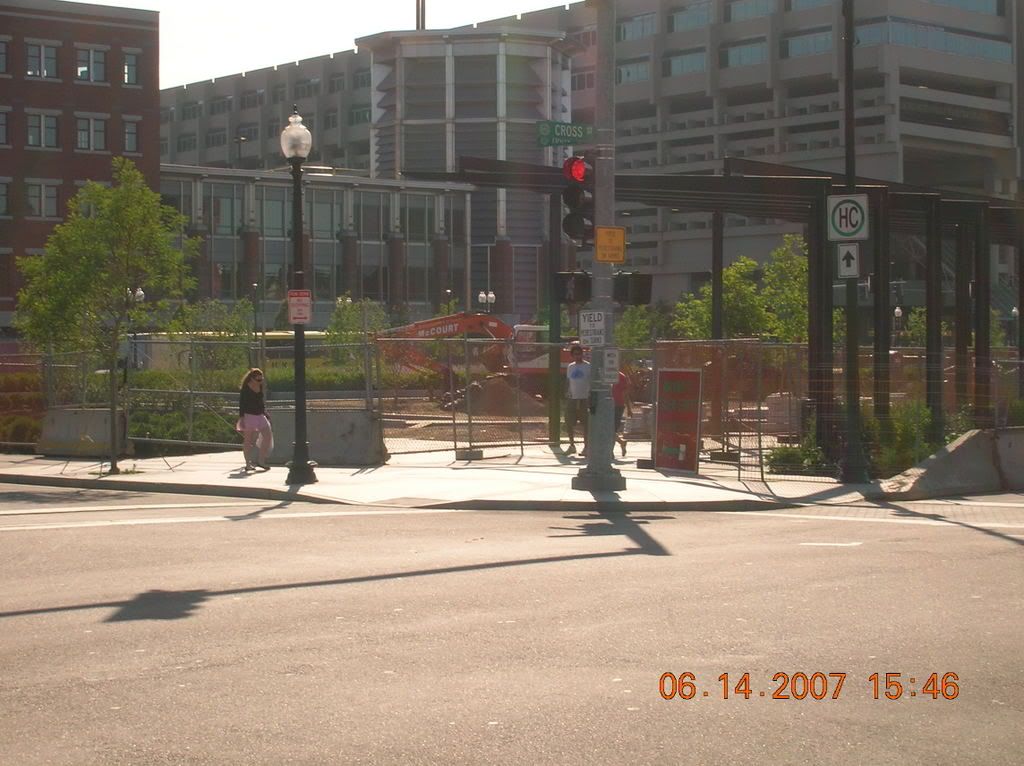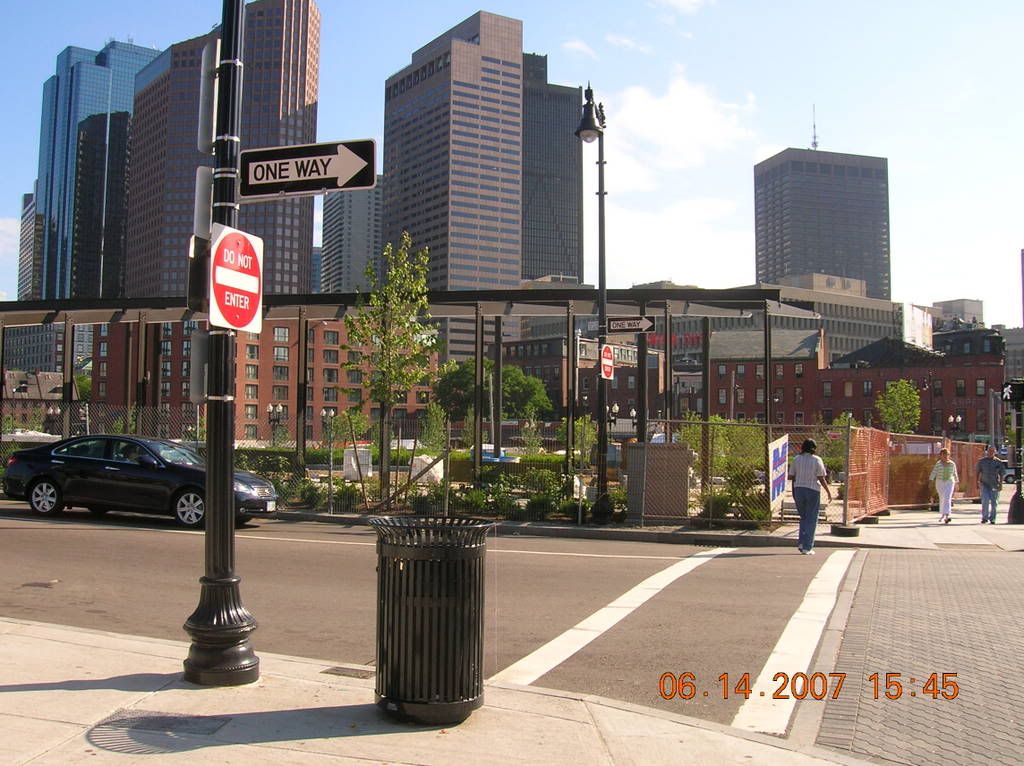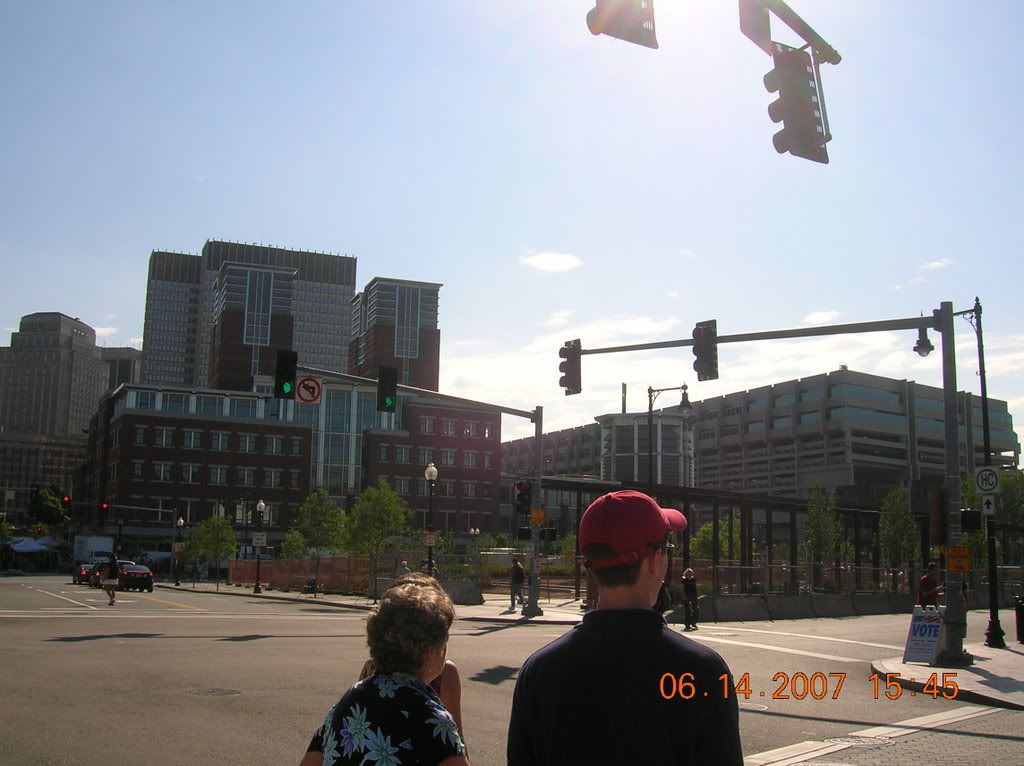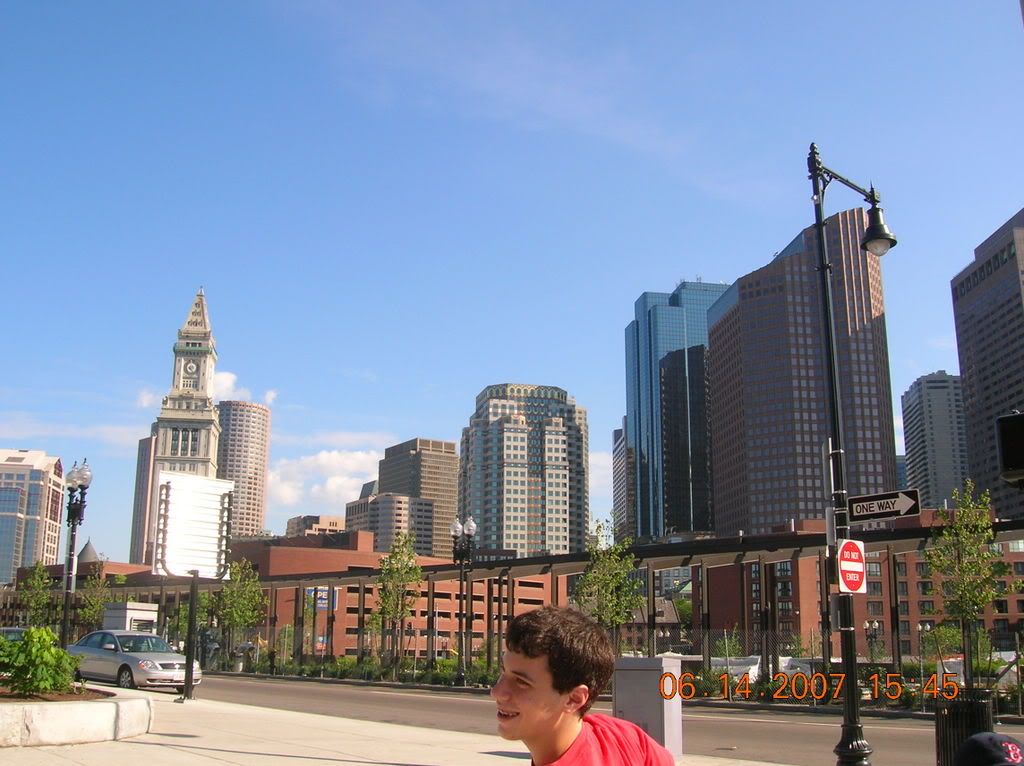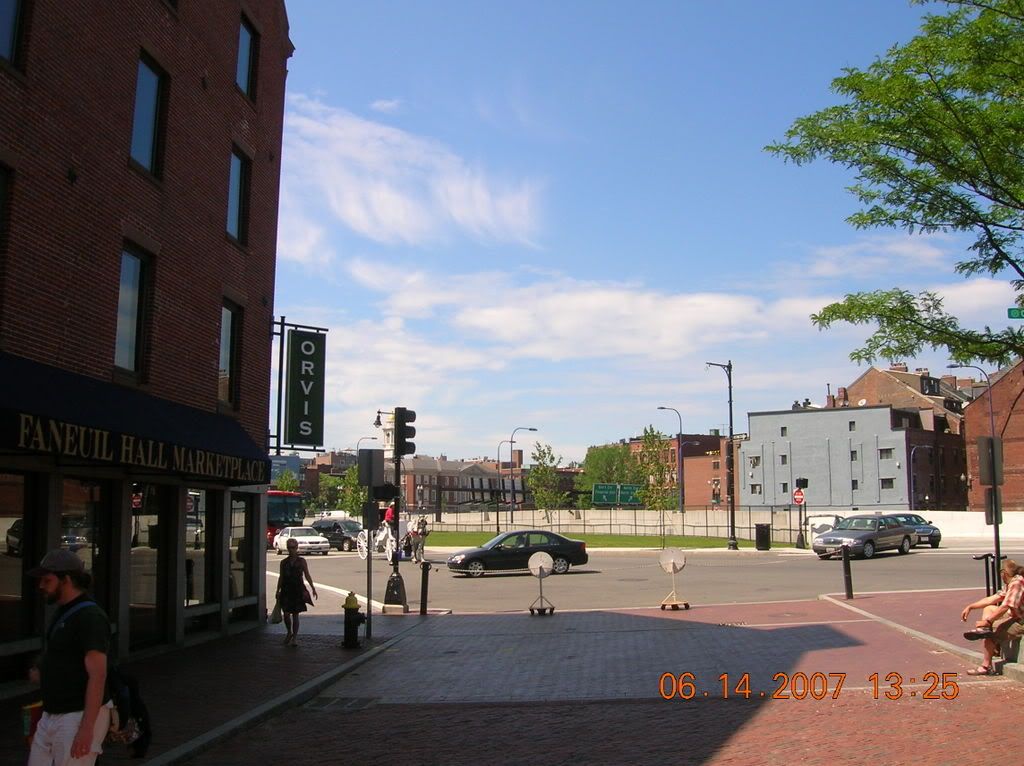THE OBSERVER
Greenway globalist
Cultural center's new leader to build bridges
By Sam Allis | July 1, 2007
There's a new player in town. Dan Neuman. Arrived here from LA in January, the Moon of the Brown Snow, to run the New Center for Arts and Culture, an outfit I'm guessing 90 percent of Boston has never heard of.
The name sounds like a CIA cover. It could mean anything. And "new" makes you wonder what the "old" was.
The project was first envisioned as a Jewish institution in Newton and downtown Boston, but ended up, with strong backing from power brokers like Norman Leventhal and Ed Sidman, with a broader mission on a key spot on the
star-crossed Rose Fitzgerald Kennedy Greenway.
Neuman, 63, vows the center will not be a stealth Jewish institution camouflaged with lofty rhetoric about global cultures, as more than a few believe, but he accepts the skepticism.
"It's natural and understandable," he says. "The proof will be in the performances. They must be the highest quality. There is a Jewish aspect of this to its core. But this is going to be an institution dedicated to bringing people together through the arts of the world."
Developer Ron Druker, who is chairman of the project, puts it this way: "The Jews are not taking over the greenway."
Neuman is a globalist, like Joseph Aoun, the linguistics scholar from Lebanon who is president of Northeastern. I like that.
Boston needs a lot more of these types if it is to gain a shred of credibility as the "world-class city" it claims to be.
Neuman is an interesting bird. Born in Switzerland. Grew up in Chicago. Married an Indian woman. Taught anthropology at Dartmouth. Ran the music school at the University of Washington. Did extensive research in India on musical traditions there. Ran the School of the Arts and Architecture at the University of California, Los Angeles , where he raised close to $100 million. And then he was executive chancellor and provost of the university, where he managed a $3.6 billion budget.
The India part is fascinating. He and his research team studied the tradition of hereditary musicians, where families produce generations of them. He then produced an atlas called "Bards, Ballads and Boundaries" that documents the familial musical tradition in 3,000 villages in three western districts of Rajasthan.
He'll mention the number of great 20th-century violinists , like Jascha Heifetz, who came from Odessa. He'll note the large Japanese community in Brazil.
"I came here to create a new kind of institution," he says. "Boston doesn't have anything like this. It's not going to be Euro centric. Think of Glenn Gould and Ravi Shankar."
The Jewish Diaspora , he posits, has given that community a sensibility that is relevant today, when other diasporas are reshaping America. So the center will examine the global diaspora informed by the Jewish Diaspora experience. We'll see how that plays out.
LA, he adds correctly, is far ahead of Boston in absorbing the diasporas of different ethnicities: "It is still in the future here." His goal is noble, but then you'd fill Fenway with the number of people who want to bring people together. So what's his angle?
What he calls fusion events, which sounds rather Hollywood. It's not: "We want to avoid an evening devoted to Greek culture, then another Japanese, and another Chinese."
Instead, think of an Indo-Brazilian evening, where both cultures bring their music together on the same stage. Brazilians, he notes, have been the fastest-growing immigrant community in Boston since 2000. Great, and the connection between Indians and Brazilians is what?
"There is none," he says. "I like the idea precisely because there is none."
Neuman sees world music, now ubiquitous thanks to the Internet, critical to his institution. He's betting it will be a big draw for Boston's young. I wonder whether they'll actually show up.
"They will," he maintains. "I've seen it." Neuman recalls a conference in Berlin he attended a decade ago. After the powwow ended, young people poured into a room with a record of a famous Pakistani musician playing Kavali music, and began dancing to it.
"It never occurred to me that people would listen to it, let alone dance to it," he says.
Neuman and others have cited as a template New York's 92d Street Y, the great clearinghouse for politics, literature, music, art, you name it. He reminds me that the Y is a Jewish institution -- begun as the Young Men's Hebrew Association.
Boston definitely needs its own 92d Street Y, but this isn't it. The Y offers a much broader menu, including big dollops of politics, domestic and global, to give it torque. The center here is strictly arts.
Dan Neuman brings a lot to Boston. His skills are broad and eclectic. He's a proven bridge builder and a great face for this institution, whatever its outcome.
That said, he has his work cut out for him until 2012, when the New Center is slated to open.
Boston has always been a tough audience, and we're now particularly petulant about anything to do with the greenway, given its sorry history.
We're also aware that we'll find out what this thing really is only when it opens.
Sam Allis's e-mail address is
allis@globe.com
